Medical missionary who once criticized the UN's work in Haiti wants them back after government collapse
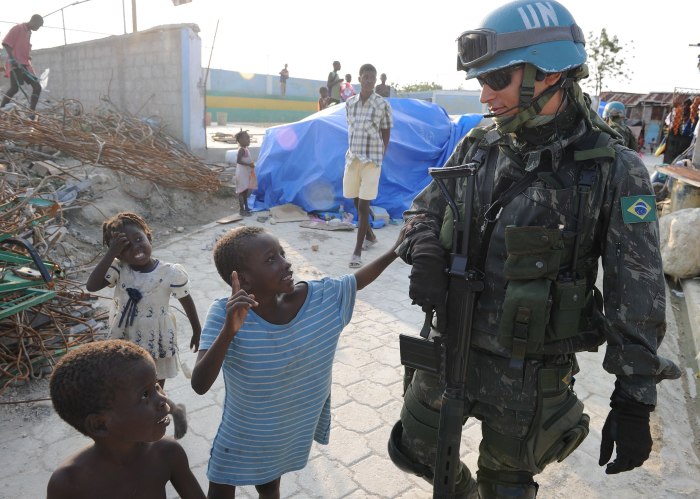
As gangs overrun Haiti to the point where it is now dangerous for even American missionaries to be there, Dr. David Vanderpool, a trauma surgeon who co-founded the medical ministry LiveBeyond, which does significant work in the Caribbean nation, says he believes the United Nations needs to return to help stabilize the country despite its checkered history there.
“I think the government collapse was really the thing that precipitated this widespread gang violence. We’ve always had gang violence, but not nearly as widespread,” Vanderpool, a Christian surgeon from Dallas, Texas, who has served globally in medical missions, told The Christian Post in a recent interview.
For years, Vanderpool says he was a fierce critic of the U.N. and its work in Haiti due to significant mismanagement of abuses committed by peacekeepers. These abuses include a Cholera outbreak beginning in 2010 that killed more than 10,000 Haitians and infected over 820,000 others. It was caused by Nepalese peacekeepers dumping waste next to a major river supplying water to several villages. The U.N. peacekeepers were still discharging their waste into public canals as late as 2014. There were also significant reports of sexual abuse and exploitation of women and children, as well as human rights abuses committed by U.N. peacekeepers.
In graduate research for Boston University titled, Peacekeeping in Haiti: Successes and Failures, Mariana Cabrera Figueroa concluded that even though the U.N. achieved some success in infrastructure building and democracy during its time in Haiti, it failed in its humanitarian mission, which caused a significant divide among the Haitian people about the value of its work there.
"The U.N., as we know, is an international organization dedicated to peace, communication, and humanitarianism. It succeeded, eventually, in helping Haiti rebuild its infrastructure and democracy in a more peaceful environment. It failed, however, on the humanitarian aspect of its own mission," wrote Figueroa.
"By allowing U.N. peacekeepers to act in ways that abused and exploited the Haitian people, the U.N. allowed the mission to continue its unintended effects on civilians. Had the United Nations intervened in the toxic peacekeeping culture shown in Haiti, it might have saved many Haitians from sexual and physical abuse, or from death by cholera," she added.
In October 2017, the U.N. closed down the United Nations Stabilization Mission in Haiti, popularly known by its acronym MINUSTAH after it was established by Security Council resolution 1542 on June 1, 2004. The mission replaced a multinational interim security force that had been in place since February of that year when Jean-Bertrand Aristide, the nation’s first democratically elected president, and former priest, was ousted from power in a coup.
In July 2021, nearly four years after MINUSTAH pulled out of Haiti, the country's then-President Jovenel Moïse was assassinated, leaving the country to become overrun by gang rule.
Vanderpool believes the departure of MINUSTAH opened a door for the gangs which he hadn't seen coming.
"They were providing security for Haiti. [The] United Nations had many problems. I was one who criticized them. When they leave, and everything goes down, you realize that they were actually doing a good job, so I had to repent for that," he told CP.
“When they [U.N.] left, there was really no security force that could counter the gangs at their level. The gangs are exceptionally well-armed. They used to just have rusted revolvers. Now, we've actually seen medium Russian-made machine guns in their hands, which is very disconcerting,” Vanderpool said. “I think those two factors — the collapse of the government and the departure of the United Nations Security Force — were the two big impacts [that] opened the door for the gangs to expand rapidly.”
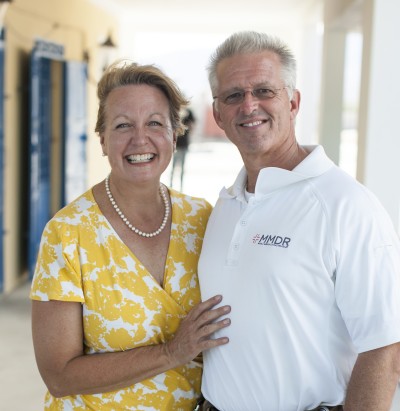
Vanderpool’s call for the U.N.’s return to Haiti comes as the U.N. Security Council, with strong support from the U.S., is considering a proposal to allow Kenya to lead a 1,000-member multinational contingent of police officers that would help train and assist Haitian police in restoring order to the country.
“I've been calling for this (international security support) since 2019. I think the U.N. has got to come back. You know, they left in 2017 [when] their mission was complete. And then of course, immediately after that the country devolved into violence. And in the United Nations Charter, it's in their charter that this is what they do — provide security in low-income countries like this. And so, it's incumbent upon them, absolutely incumbent upon them, to come in now,” Vanderpool insisted. “It's been four very long years of violence for the Haitian people.”
The Texas surgeon also believes that security support from the international community needs to be military grade.
“I don't know that a police force is going to be sufficient. These gangs have armored vehicles, and they have medium machine guns, which are very ferocious. I think the police are going to be way out-armed and outmanned. It needs to be a military force, in my opinion. However, anything that we can get done there will be a help,” he said.
The challenge for Christian ministries
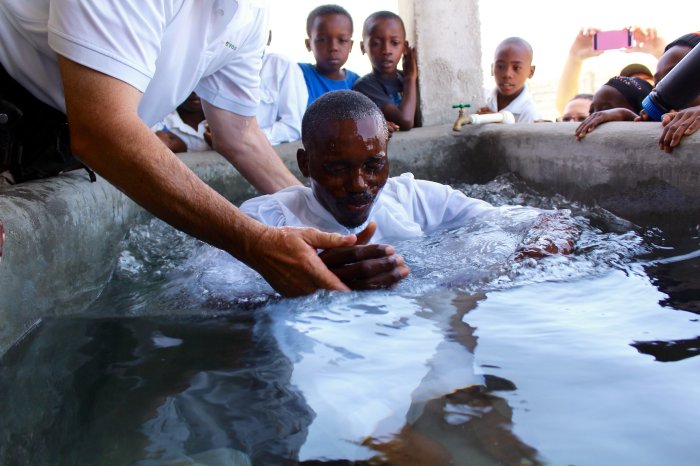
Vanderpool’s call for the U.N. to return to Haiti also comes amid recent high-profile kidnappings of Christian ministry workers.
Earlier this month, the Christian education ministry El Roi Haiti celebrated the release of their founder’s wife, Alix Dorsainvil, and daughter, whom armed gangsters abducted on July 27 when the State Department re-issued a Level 4 travel advisory for the country.
The advisory asked Americans not to travel to the Caribbean nation and ordered all U.S. citizens and non-emergency government employees to leave as soon as possible.
"Do not travel to Haiti due to kidnapping, crime, civil unrest, and poor health care infrastructure. On July 27, the Department of State ordered the departure of family members of U.S. government employees and non-emergency U.S. government employees. U.S. citizens in Haiti should depart Haiti as soon as possible by commercial or other privately available transportation options, in light of the current security situation and infrastructure challenges," the advisory said. "U.S. citizens wishing to depart Port-au-Prince should monitor local news and only do so when considered safe."
In December 2021, after about two months in captivity, the final 12 of 17 remaining kidnapped missionaries with Christian Aid Ministries made a daring escape to freedom after praying. The group included a married couple, a 10-month-old baby, a 3-year-old child, a 14-year-old girl, a 15-year-old boy, four single men and two single women. They were held captive by the 400 Mawozo Gang, one of Haiti's largest active criminal groups.
Understanding the danger

The abduction of the Christian Aid Ministries missionaries was the event that prompted Vanderpool and his wife, Laurie, to finally leave Haiti a year ago. They had previously evacuated their American staff in 2020 at the beginning of the COVID-19 pandemic when the State Department also issued a Level 4 Advisory.
“Countries that are usually on that Level 4 are countries like Afghanistan, North Korea, Somalia, Mali, places like that, that are completely just untenable from a violence standpoint, and Haiti,” Vanderpool said.
“Haiti had been a Level 3 country, which is somewhat passable, for many years. Then in 2020, it went to a Level 4, and the Level 4 designation is a very dire designation, the State Department would sort of flip-flop, and Haiti would be a 3 or 4. We do not stay in the country if it's a Level 4 and there's a number of reasons for that,” Vanderpool explained.
“One of which is insurance. We have evacuation insurance, and it does not cover Level 4 countries. … The State Department and the embassy make it extremely clear that they have no way to protect us if things go south. And so that's one thing that's extremely important for people to understand,” he said.
“We see people all the time who are short-term missionaries, and they go down there [to Haiti] and take children, high school students. It's absolutely untenable right now. It is so dangerous they probably wouldn't survive it.”
A report from the United Nations Children's Fund said on Monday that nearly 300 cases of kidnappings were confirmed in the first six months of 2023 which was almost equal to the total number of kidnappings for 2022 and nearly three times the number of kidnappings recorded in 2021.
The U.N. agency dedicated to providing humanitarian and developmental assistance to children around the world said the bulk of kidnapping victims are women and children who are used as bargaining chips for money or other gain.
“The stories we are hearing from UNICEF colleagues and partners on the ground are shocking and unacceptable," UNICEF Regional Director for Latin America and the Caribbean, Garry Conille, said in a release. "Women and children are not commodities. They are not bargaining chips. And they must never be exposed to such unimaginable violence. The growing trend in kidnappings and abductions is extremely worrisome, threatening both the people of Haiti and those who have come to help.”
Devolution
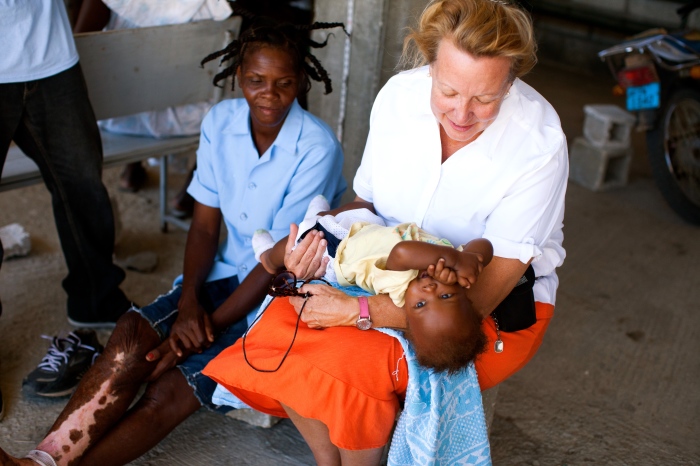
LiveBeyond, which offers healthcare, nutrition and education support in a region of Haiti known as Thomazeau, sits on a secure 63-acre compound purchased by the Vanderpools after the 2010 earthquake in Haiti that killed more than 200,000 people.
Vanderpool and his wife moved to the country that shares an island with the Dominican Republic to provide relief full time. The U.N. estimates that some 5.2 million people, or nearly half of Haiti’s population, require humanitarian assistance, including almost 3 million children.
Highlighting the conditions he saw in the poorest country in the Western Hemisphere, and one of the least developed countries in the world, Vanderpool said they immediately got to work after purchasing land for their ministry.
“When we move down there, Haiti has almost no electricity. There is a little bit [but] most of it is generated by diesel generators. It has almost no running water throughout the entire country. So you look at a country in the 21st century, essentially, without electricity, and without running water, almost no sanitation as well,” Vanderpool said. “It's just excruciating poverty, people are starving to death. People do not have access to health care. Education is extremely rudimentary.”
Currently operating in five countries, LiveBeyond built a surgical hospital in Haiti, started a maternal health program to address an astronomical maternal mortality rate and also launched a child mortality program.
Vanderpool recalled how local gang members once tried kidnapping his wife from their compound in 2015 but were unsuccessful.
“My wife was attacked brutally,” Vanderpool recalled. “They tried to kidnap her; they beat her. They held her captive on our base. They were not able to get her out. We confronted them. There were four armed men. We confronted them, and they fled.”
Laurie Vanderpool had to return to America for treatment after that attack but eventually returned to Haiti to continue ministry there with her husband.
Three years later in 2018, the gangsters were successful in kidnapping two LiveBeyond workers in Haiti.
“Two of our team members were kidnapped in 2018 and tortured for four days. We were able to get those team members released without paying a ransom,” Vanderpool said.
When asked how he was able to secure the release of his workers without paying, Vanderpool said he used the value of his ministry to the community as a bargaining chip.
“Back then, you know, the head of that gang, it's a little complicated, but he knew we took care of his gang members, his kids may have been in our school, we delivered his wife's babies in our clinic, you know, and so we represented the only healthcare that that gang had,” Vanderpool explained.
“And so when our two guys were kidnapped, I knew the gang member, I knew the gang leader. And so we actually communicated. And I said, 'We're not going to pay anything. If you make it worse for us, then we'll shut everything down and nobody will have healthcare, including yourself,'” the trauma surgeon continued. “And he said, ‘We do not want to interfere with what you're doing. You've provided great service to the people.’ And so he actually returned our two team members to us without having to pay.”
That was a different time says Vanderpool. Today, anyone can become a target.
“It used to be that the unspoken unwritten etiquette was the gangs would not interfere with American missionaries. That held true for quite some time. Then we realized, obviously, that things had changed dramatically a couple of years ago when 17 missionaries were kidnapped — American missionaries — and held for several months. And so that represents quite a turning point for the relationship between American missionaries and gangs.”
Development
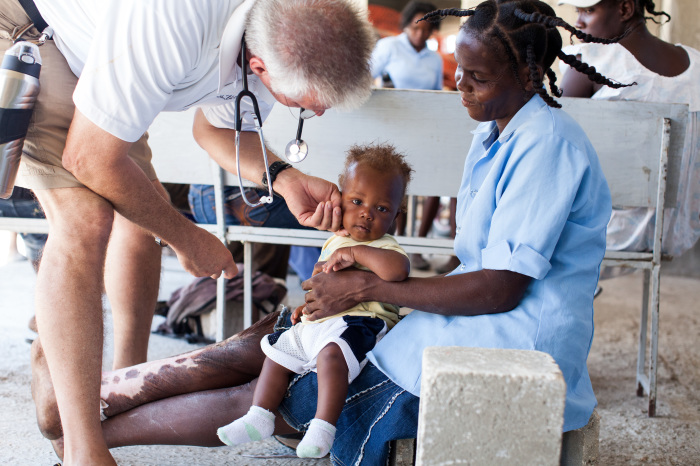
Vanderpool is now urging American Christians who want to help Haiti to understand that Haiti isn’t a safe place to do missions, particularly if they don’t understand the significant development assistance Haiti needs.
“There are a lot of well-intentioned people who go down to Haiti but what they do doesn't really make an impact. It provides a really feel-good [experience] for the people doing it, but as far as lasting impact, it's just not there. So, I would really encourage people to educate themselves in international development,” Vanderpool said. “Do not just assume that because you have a good heart, and you love people, what you're doing is going to be really beneficial.”
He recommended that Christians interested in working in Haiti review the literature on things like the U.N.’s Millennium Development Goals and Sustainable Development Goals.
“The United Nations is a juggernaut of an organization, and they provide fantastic education for people. The WHO is another group that just does a fabulous job in researching what works and what doesn't work. And so I would advise people to just study these things.
“It's talking a lot about clean water. It's talking about adequate nutrition; it's talking about maternal healthcare. It's talking about child healthcare. It's talking about access to excellent education. And so going through and looking at those things, investing the effort to become facile with some elements of these development goals that the United Nations has said is absolutely incumbent upon the world to provide and then providing those from a highly educated standpoint,” he added.
“[Don’t] just assume that because you're a sweet person and you go to church, that you're going to be helpful in a country like Haiti. That may be true, but it's more than likely not going to be true,” Vanderpool said. “You need to really have something to bring to the table, that is going to radically change the society in Haiti for good.”
Contact: leonardo.blair@christianpost.com Follow Leonardo Blair on Twitter: @leoblair Follow Leonardo Blair on Facebook: LeoBlairChristianPost





























